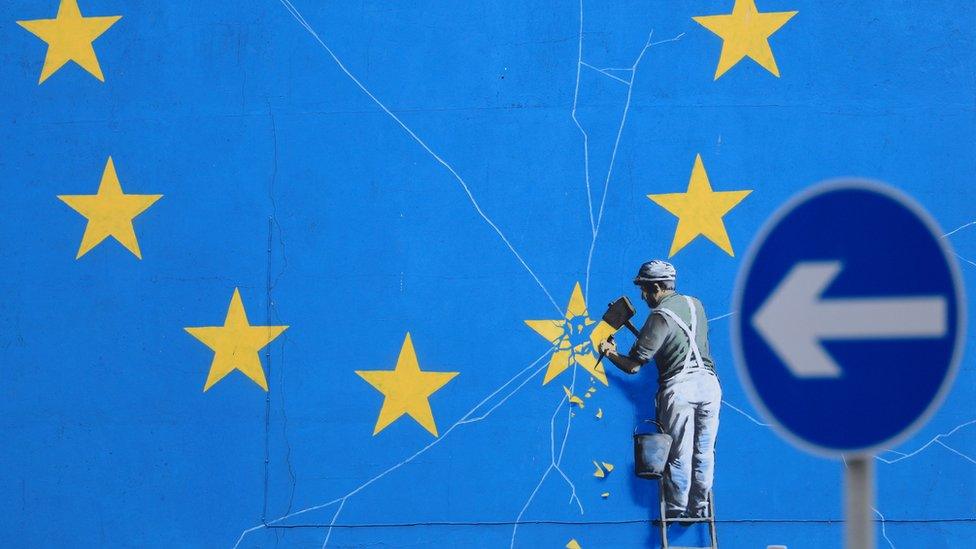Brexit: Sir Graham Brady 'could accept delay' if deal in place
- Published
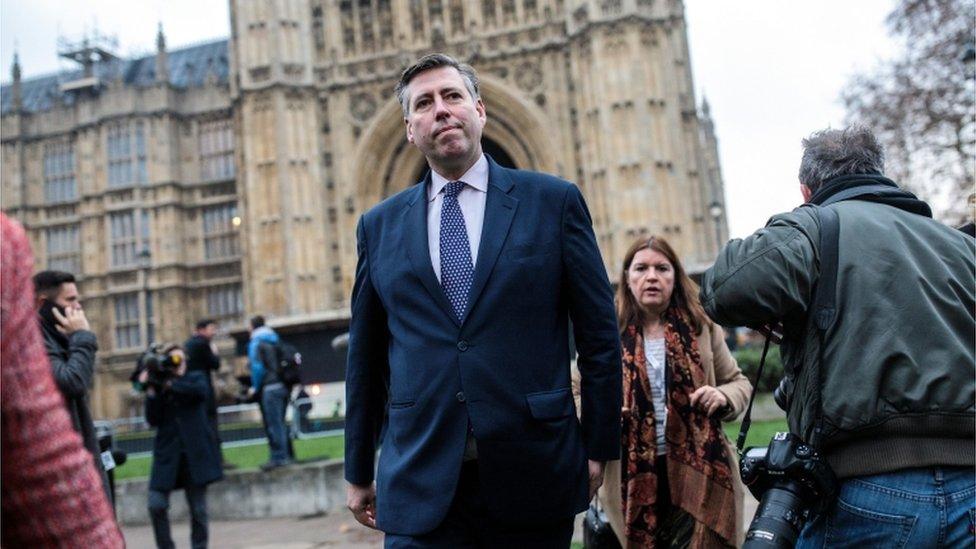
Senior Conservative backbencher Sir Graham Brady has told the BBC that he could accept a delay to Brexit - as long as a deal was already agreed.
He said a short delay to the 29 March exit date would be acceptable if needed to get legislation through Parliament.
The government says its position has not changed on the date but Foreign Secretary Jeremy Hunt has suggested "extra time" may be needed.
MPs rejected a bid to postpone Brexit if no deal was reached by 26 February.
That amendment, from the Labour MP Yvette Cooper, would have delayed the 29 March departure date by several months, but it was voted down by 321 to 298 on Tuesday.
But Sir Graham, chairman of the influential 1922 Committee of Conservative backbenchers, told Nick Robinson's Political Thinking podcast, the Cooper amendment "would have been deeply counter-productive because it moves off the decision point".
Putting off the decision would only lead to more uncertainty, he said.
"I would only countenance a delay if we already had a deal agreed, it's just a matter of doing the necessary work to implement it," said Sir Graham.
"Once we've reached an agreement and we know the terms on which we're leaving, if we decide that we need another two weeks in order to finish the necessary legislation through Parliament, I don't think anybody's going to be too worked up about that, because we will have made a decision."
The UK is due to leave the European Union at 23:00 on 29 March, however MPs have overwhelmingly rejected the withdrawal deal that the government had negotiated with the EU.
On Tuesday they voted for the prime minister to seek "alternative arrangements" to the controversial Irish "backstop" proposal, which is opposed by many Conservative MPs and the Democratic Unionist Party.
The backstop is an "insurance" policy to stop the return of checks on goods and people along the Northern Ireland border, if no deal is reached in time. It would effectively keep the UK inside the EU's customs union, but with Northern Ireland also conforming to some rules of the single market.
Its critics say a different status for Northern Ireland could threaten the existence of the UK and fear that the backstop could become permanent.
But the EU's chief Brexit negotiator Michel Barnier said on Wednesday the backstop was "part and parcel" of the withdrawal deal and would not be renegotiated.
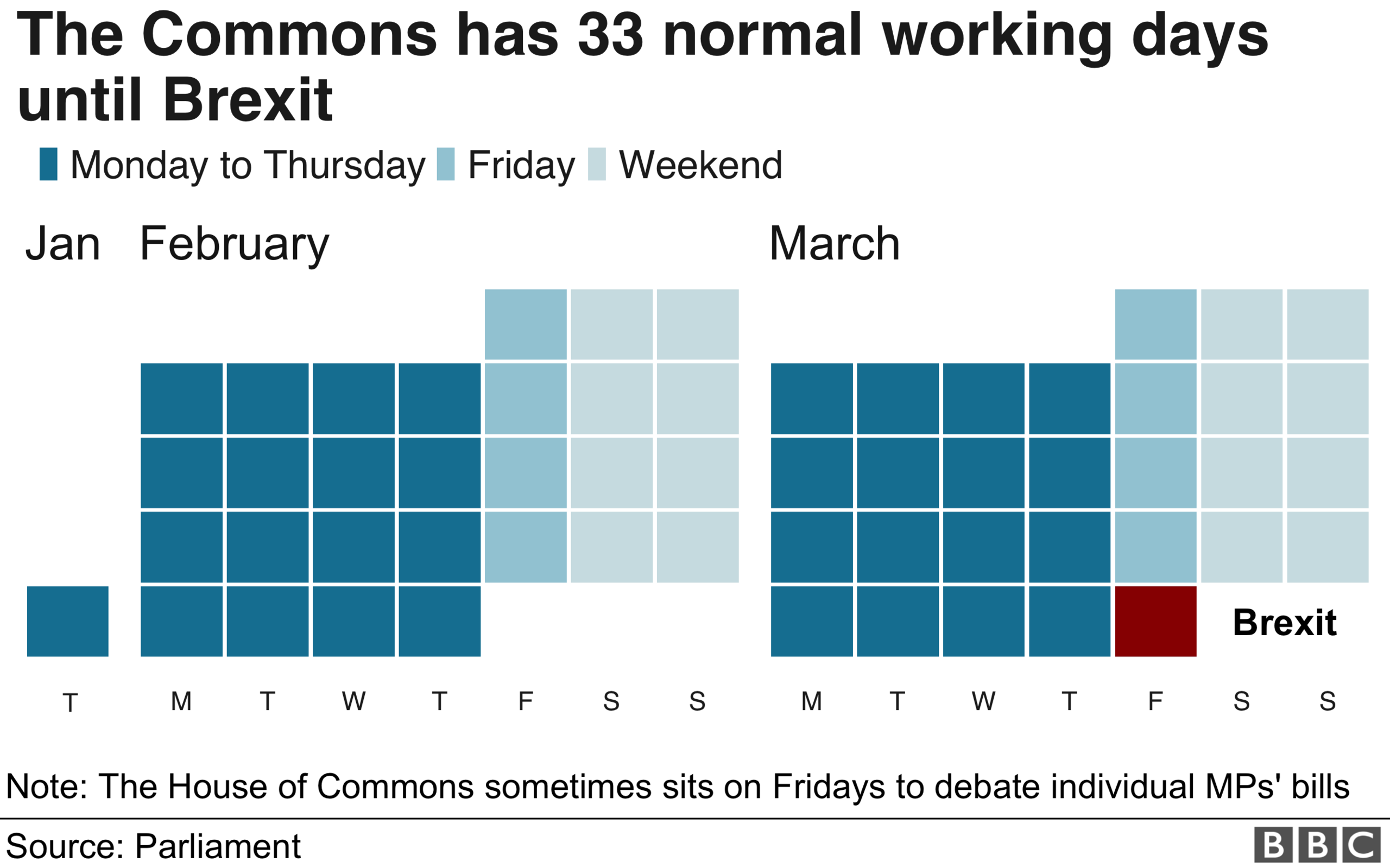
Earlier on Thursday, Mr Hunt said "extra time" may be needed to finalise legislation for Brexit and a possible delay in the UK's departure from the EU depended on the progress made in the coming weeks.
And BBC political editor Laura Kuenssberg said there had been "growing chatter" about a potential delay and a potential extension to Article 50 - the mechanism by which the UK leaves the EU.
But the prime minister's official spokesman said the government remained committed to leaving the EU on 29 March.
Parliament had been due to rise for recess on Thursday, 14 February and return on Monday, 25 February but that has now been cancelled.
"The fact that recess won't be taking place shows you that we are taking all available steps to make sure that 29 March is our exit date," the spokesman said.
"The prime minister's position of this is unchanged - we will be leaving on the 29th."
Downing Street was also discussing the possibility of Parliament sitting for extra hours in the run up to Brexit, the spokesman said.
Labour leader Jeremy Corbyn accused the government of running down the clock on Brexit.
He said: "It is possible that there will have to be an extension in order to get an agreement because we cannot leave the EU on March 29 without an agreement.
"Crashing out would mean problems of transport, problems of medicine supply, problems of supply to the food processing industry that does just in time deliveries - and that simply is not acceptable.
"This government has had two-and-a-half years to negotiate and has failed to do so."
Meanwhile, Labour MP John Mann has said a group of 10 MPs from his party met the prime minister two weeks ago to ask for "a significant amount of money" for poorer areas, "so that we can actually move forward as we leave the EU".
When asked about a Times article that said Mrs May was preparing to entice Labour MPs, external to vote for her deal with money for constituencies, Mr Mann told the BBC he had voted for the deal already, "so I can't be bribed".
"There's no expectation, this isn't transactional politics. We're asking for money for areas that have not had their fair share in the past," he said.
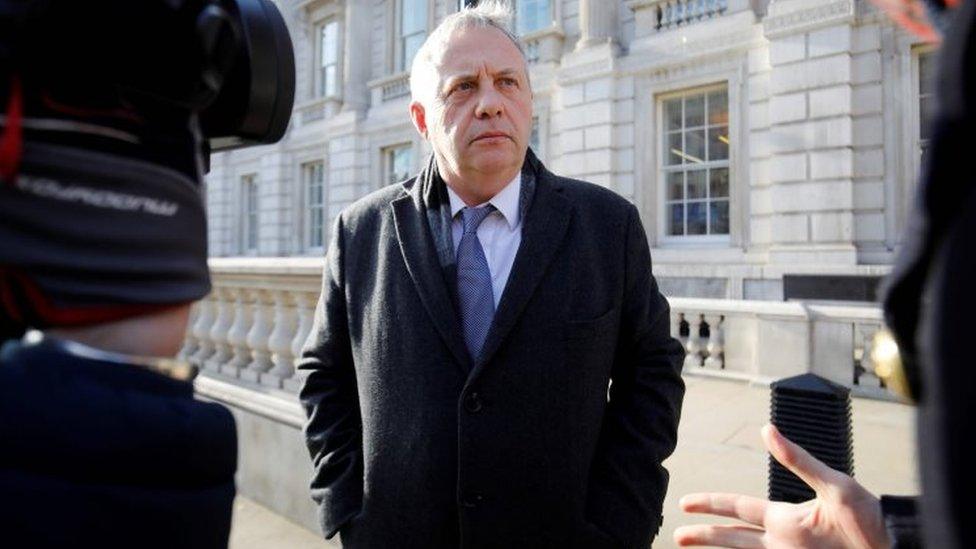
Labour MP John Mann was among those meeting the prime minister
Several Conservative MPs have been spotted going to meetings in Downing Street, including former Brexit minister Steve Baker, Iain Duncan Smith, Mrs May's close ally Damian Green and Nicky Morgan.
Ms Morgan, a former education secretary, said she was there to discuss a plan known as the "Malthouse Compromise".
Engineered by both Leavers and Remainers, the proposal includes extending the transition period for a year and protecting EU citizens' rights, instead of using the backstop.
Union officials have also been meeting with government officials in the Cabinet Office to discuss Mrs May's Brexit plan.
But a Trades Union Congress spokesman said the prime minister's deal came "nowhere close" to offering the safeguards desired for working people.
- Published31 January 2019
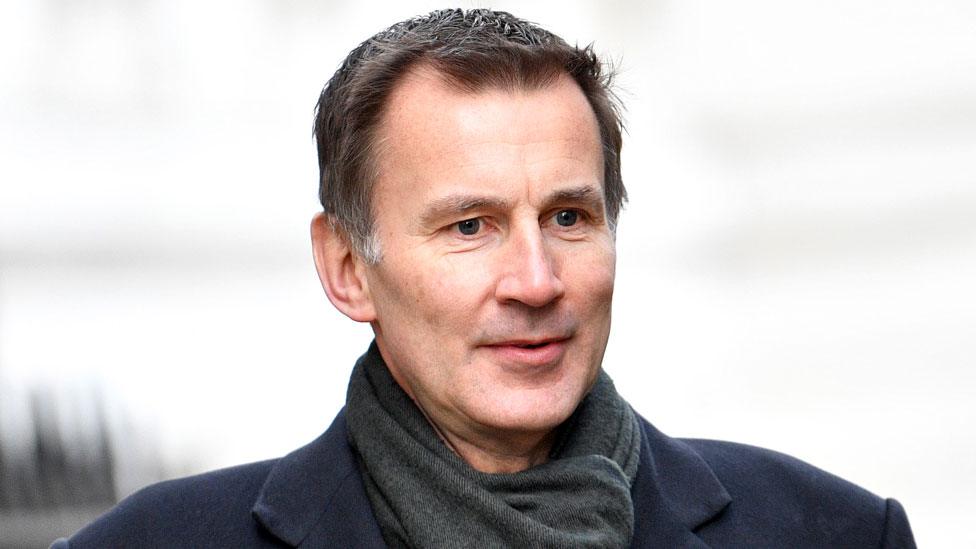
- Published30 January 2019
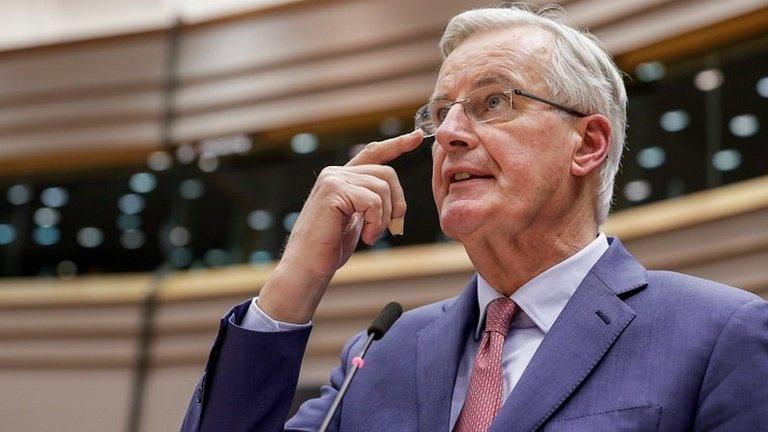
- Published25 January 2019
- Published31 January 2019
